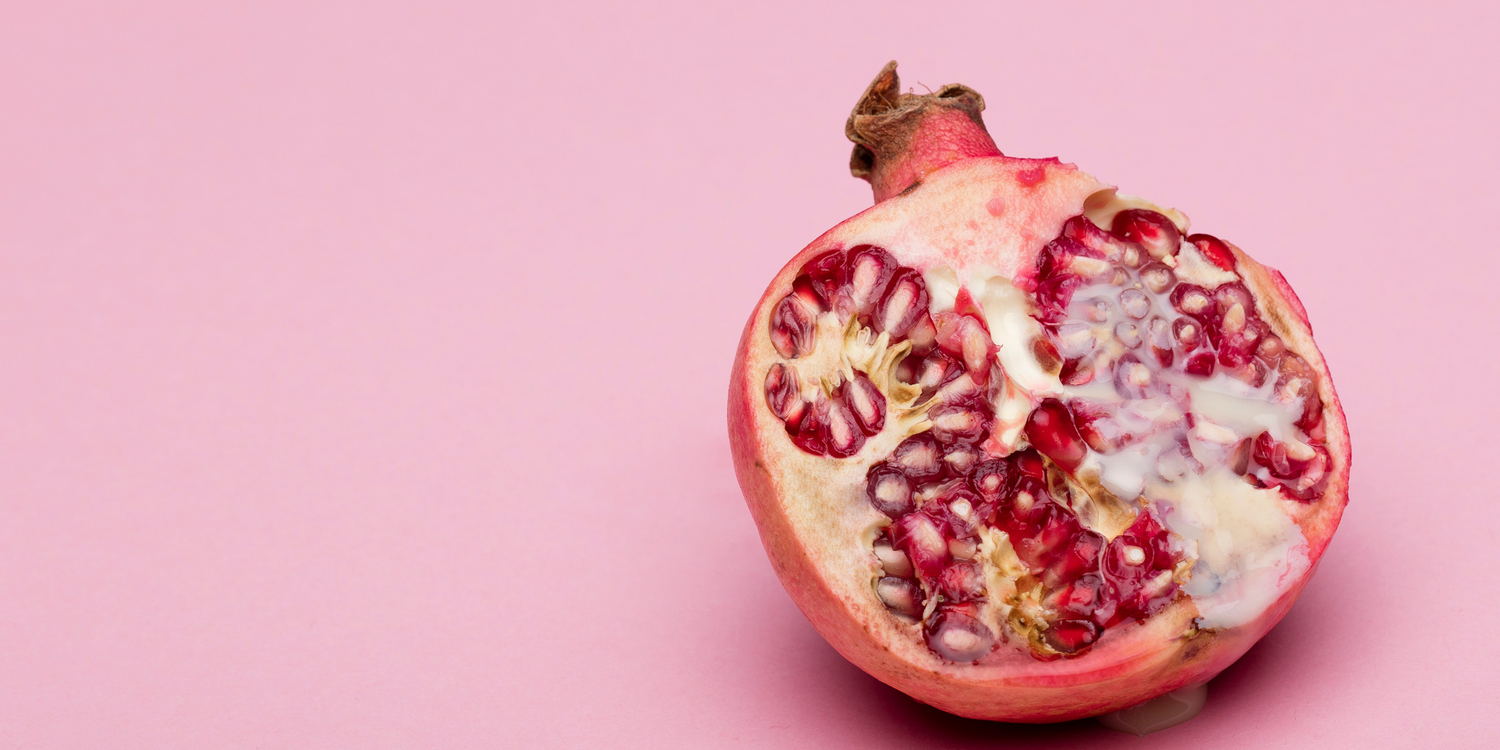Key Takeaways
- Would you like to increase your chances of getting pregnant?
- The quality of your eggs plays a crucial role in this and can be positively influenced by diet, lifestyle and targeted measures.
- In this article, you will find out which nutrients and fitness routines improve your egg quality, how you can effectively reduce stress and why scientific findings on egg health are important.
Are you looking to increase your chances of getting pregnant? The quality of your eggs plays a crucial role in your fertility. Many women wonder how they can improve their egg quality to boost their chances of conception. Your diet and lifestyle have a significant impact on the health of your eggs. From healthy fats to stress reduction, there are many ways to positively influence your egg reserve and quality.
In this article, you'll discover scientific insights into improving egg quality. We explore how specific nutrients like folic acid and CoQ10 can support ovulation and fertilization. Additionally, we explain the role of exercise and fitness in balancing your hormones. You'll also receive practical tips on optimizing your sleep and reducing stress—both critical factors for healthy eggs.
Scientific Insights into Egg Quality
Genetic Factors
Egg quality is crucial for your fertility and the likelihood of a successful pregnancy. Scientific studies have shown that genetic factors can significantly influence egg quality. Researchers have identified 290 gene regions associated with the timing of natural menopause. These genes can impact the onset of menopause by anywhere from a few weeks to up to three and a half years.
Particularly interesting are two genes named Chek1 and Chek2. Experiments with mice have shown that an extra copy of the Chek1 gene leads to a higher number of eggs at birth, potentially due to improved DNA repair in the eggs during fetal development. Mice lacking the Chek2 gene showed a slower decline in ovarian reserve.
Hormonal Influences
Hormones play a central role in the female cycle and significantly affect egg quality. The follicle-stimulating hormone (FSH) and luteinizing hormone (LH) regulate egg maturation and ovulation. Estrogens, especially estradiol, are responsible for building the uterine lining, while progesterone maintains it during the second phase of the cycle.
Hormonal imbalances can negatively affect egg quality. Elevated prolactin levels, for example, can impair ovarian function and reduce fertility. An excess of male hormones like testosterone and DHEA-S can also disrupt ovarian function.
Oxidative Stress
Oxidative stress plays an important role in the aging of both sperm and eggs. As we age, genetic and structural damage accumulates, which can impair fertilization. In men, for example, the DNA fragmentation rate in sperm increases with age, often caused by oxidative stress.
To combat oxidative stress, your eggs have antioxidant defense mechanisms. These include enzymes like superoxide dismutase (SOD), catalase, and glutathione peroxidase, as well as non-enzymatic antioxidants like vitamins C and E and glutathione. However, as you age, the effectiveness of these antioxidant systems may decline, making your eggs more susceptible to oxidative damage.
Dietary Interventions
A balanced diet is essential for your fertility and can increase your chances of pregnancy. Studies have shown that a healthy diet positively affects fertility and the likelihood of conception. Generally, foods that improve your overall health are also beneficial for your fertility.
To enhance your fertility, consider incorporating the following foods into your diet:
- Fruits and vegetables, especially leafy greens like spinach and chard, rich in folic acid
- Fruits high in antioxidants, such as berries and citrus fruits
- Zinc-rich foods
- Foods with omega-3 fatty acids
- Iron-rich foods
- Whole grains
- Dark chocolate (in moderation)
Avoid the following:
- Genetically modified foods
- Aspartame
- Unfermented soy
- Preservatives
- Excessive consumption of fatty fish
- Coffee, alcohol, and cigarettes
Both men and women should pay attention to their diet, as a healthy lifestyle equally affects fertility in both sexes.
Ketogenic Diet
The ketogenic diet is a very high-fat, low-carbohydrate diet known in various forms. This diet involves largely eliminating carbohydrates, leading your body to deplete its glycogen stores in muscles and the liver.
Interestingly, the ketogenic diet shows potential in treating various conditions. It has been successfully used for 100 years in treating epilepsy, particularly in children and adolescents with drug-resistant seizure disorders. There is also evidence of potential therapeutic approaches for neurodegenerative diseases such as Alzheimer’s, Parkinson’s, and multiple sclerosis.
In the context of fertility, the ketogenic diet is particularly interesting because it may disrupt tumor metabolism, reduce inflammation, and decrease angiogenesis. These effects could potentially improve egg quality. A ketogenic diet should always be undertaken with medical supervision and ideally with the guidance of a nutritionist.
Plant-Based Diet
A plant-based diet can positively influence your fertility. Legumes like chickpeas, kidney beans, and lentils are rich in minerals and proteins and should be a staple in your diet. Vegetables and salads, particularly leafy greens, are rich in folic acid, a vitamin essential for pregnancy.
Fruits are also important, as they are rich in vitamin C. Orange and yellow fruits contain beta-carotene, which promotes embryo implantation. Blue-red and red fruits are rich in antioxidants that can improve the quality of both eggs and sperm.
Choose seasonal products and, if possible, organic foods. Avoid processed foods and focus on whole grains and dried fruits, which are rich in fiber and healthy fats.
Also, remember to include vitamin D in your diet. It is important for fertility and can reduce the risk of miscarriage and other complications. You can find it in dairy products, meat, poultry, fatty fish, and egg yolks.
Exercise and Hormones
Relaxation Techniques
Stress can negatively affect your fertility. Relaxation exercises are a gentle way to reduce stress hormones and replenish your energy reserves. Here are some effective relaxation techniques:
- Yoga: Combines poses, stretches, and breathing exercises to relax both body and mind.
- Tai Chi: Deliberate, focused movements that enhance life energy and self-awareness.
- Progressive Muscle Relaxation: Helps relieve inner tension and stress.
- Autogenic Training: Acts like self-hypnosis and positively influences the autonomic nervous system.
- Meditation and Mindfulness: Promotes mental clarity and emotional balance.
For optimal results, you should practice these techniques regularly, ideally for 20 minutes a day.
Hormone-Balancing Exercises
Your monthly menstrual cycle is characterized by significant hormonal changes. To keep your hormones in balance and support your fertility, it’s important to adapt your exercise routine to the different phases of your cycle:
- Follicular Phase: Fat burning and muscle building are particularly effective in this phase. Use this time for longer and more intense endurance training.
- Ovulation Phase: Your energy levels peak during this phase. Ideal for strength training with added weights, intense workouts, or HIIT.
- Luteal Phase: Towards the end of this phase, hormone levels decrease. Focus on gentler exercises like yoga, hiking, or mobility training.
Be aware that excessive exercise can lead to hypothalamic amenorrhea—a stress-induced absence of menstruation. Listen to your body and adjust your workout accordingly.
Conclusion
Improving egg quality has a significant impact on the chances of a successful pregnancy. Through targeted dietary interventions, tailored fitness routines, and stress reduction, women can actively contribute to optimizing their fertility. A balanced, nutrient-rich diet combined with moderate exercise and relaxation techniques forms the foundation for healthy eggs and a balanced hormonal system.
Ultimately, improving egg quality requires a holistic approach. A healthy lifestyle not only positively affects fertility but also promotes overall well-being.
Medically Reviewed
This text was created by medical editors on the basis of specialist medical literature and current studies. Our aim is to work scientifically, identify sources and regularly check that the content is up to date.
References & Literature
- Ruth KS et al. Genetic insights into biological mechanisms governing human ovarian aging. Nature. August 04, 2021.
- Chavarro JE, Rich-Edwards JW, Rosner BA, Willett WC. Diet and lifestyle in the prevention of ovulatory disorder infertility. Obstet Gynecol. (2007) 110:1050–8. doi: 10.1097/01.AOG.0000287293.25465.e1
- Khalid K, Apparow S, Mushaddik IM, Anuar A, Rizvi SAA, Habib A. Effects of Ketogenic Diet on Reproductive Hormones in Women With Polycystic Ovary Syndrome. Journal of the Endocrine Society, Volume 7, Issue 10, October 2023, bvad112
- Murto Tiina. « Folate, Hormones and Infertility : Different factors affecting IVF pregnancy outcome ». 2014

